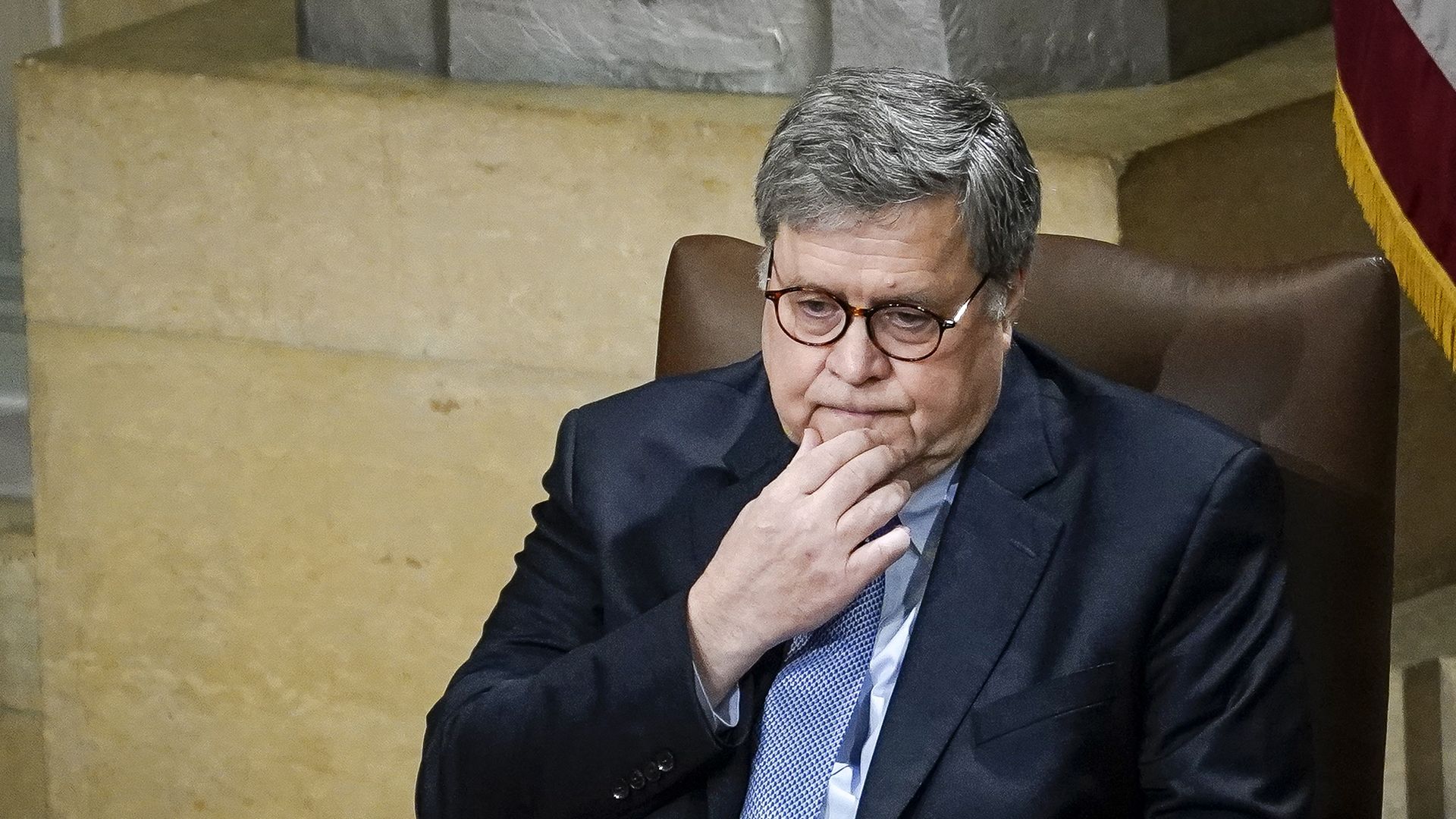Ex-DOJ official claims Barr "twisted" her words in motion to dismiss Flynn case
Add Axios as your preferred source to
see more of our stories on Google.

Photo: Drew Angerer/Getty Images
Mary McCord, former acting assistant attorney general for national security, claimed in a New York Times op-ed Sunday that the Justice Department's motion to dismiss the case against Michael Flynn "twisted" her words to suggest that the FBI's 2017 interview of Flynn was illegitimate.
Why it matters: The Justice Department's filing relies in part on McCord's July 2017 interview with the FBI to argue that the FBI had no valid counterintelligence reason to interview Flynn, and that the former national security adviser's apparent lies were therefore immaterial.
The big picture: The Flynn filing — signed by acting U.S. Attorney for D.C. Timothy Shea, a close confidante of Attorney General Barr — notes that the FBI had intended to close its counterintelligence investigation of Flynn but extended it upon learning about his conversations with then-Russian ambassador Sergey Kislyak.
- The filing claims that the calls were "entirely appropriate on their face," and that nothing was said on the calls to indicate an "inappropriate relationship" between Flynn and Russia.
- Therefore, "there was no factual basis for the predication of a new counterintelligence investigation," the filing states. "Nor was there a justification or need to interview Mr. Flynn as to his own personal recollections of what had been said."
- The filing cites a summary of McCord's interview with the FBI more than 25 times to show that Justice Department leadership wanted to notify the incoming Trump administration of the Flynn-Kislyak communications, but that the FBI refused.
Yes, but: McCord claims in her op-ed that her interview does not help support the conclusion that the interview shouldn't have taken place, and that "it is disingenuous for the department to twist my words to suggest that it does."
What she's saying: "What the account of my interview describes is a difference of opinion about what to do with the information that Mr. Flynn apparently had lied to the incoming vice president, Mr. Pence, and others in the incoming administration about whether he had discussed the Obama administration’s sanctions against Russia in his calls with Mr. Kislyak," McCord writes.
- The filing describes the FBI's reasons for not wanting to notify the incoming Trump administration about Flynn's lies as "vacillating from the potential compromise of a “counterintelligence” investigation to the protection of a purported “criminal” investigation."
- But McCord claims this "vacillation" has "no bearing" on whether the FBI interview was justified, whether Flynn's lies were material to the Russia investigation, or whether they were material to the "clear counterintelligence threat" that Flynn's lies posed due to the risk of blackmail. "The materiality is obvious," she writes.
The bottom line: "In short, the report of my interview does not anywhere suggest that the FBI’s interview of Mr. Flynn was unconstitutional, unlawful or not “tethered” to any legitimate counterintelligence purpose," McCord concludes.
The Justice Department did not respond to a request for comment.
Go deeper: Read the full op-ed
